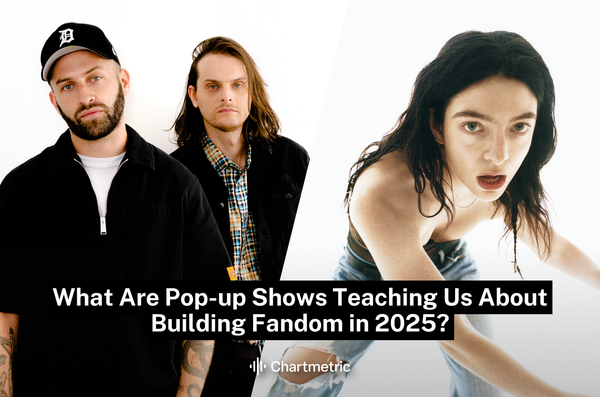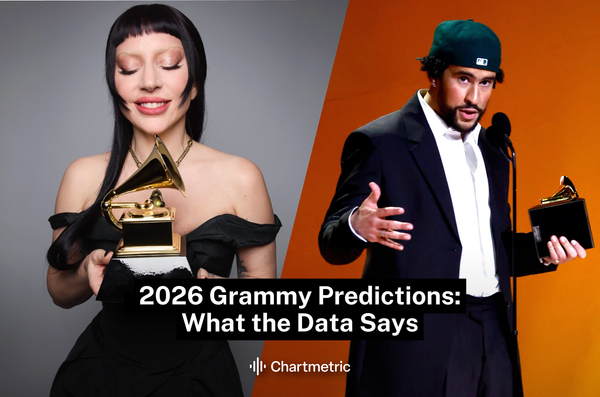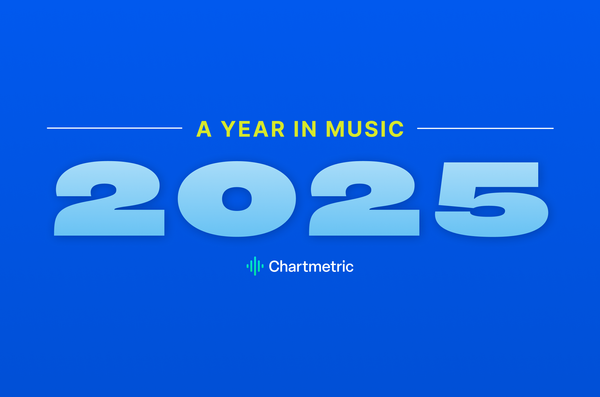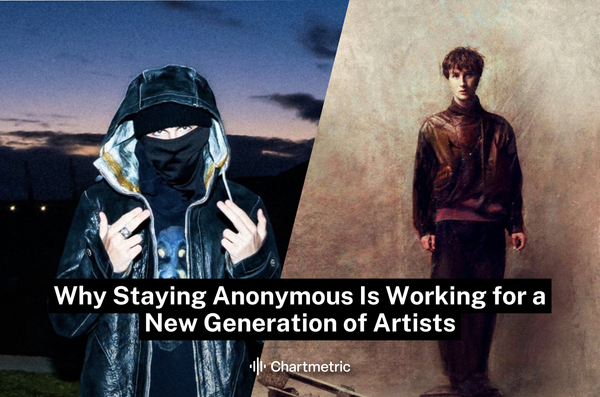Shakespeare once wrote that “All the world’s a stage.” Well, artists have been taking that idea quite literally since as far back as 1969, when The Beatles took over a rooftop on Savile Row in London's fashion district. They performed a surprise pop-up set that lasted for 42 minutes before being shut down by police, marking the final public performance of their career.
More recently in 2025, artists are still turning random everyday locations into live music forums. The All-American Rejects’ House Party Tour was just as it sounds. The famed alternative rock band set up their instruments in backyards. Zeds Dead promoted their sophomore album, Return to the Spectrum of Intergalactic Happiness, with sets in two famous delis: Katz's in New York and Canter's in Los Angeles. Lorde made her grand return to the zeitgeist with a pop-up set in New York’s Washington Square Park back in April.
New Zealand’s cultural icon barely even performed in the unconventional space. Thousands of people had gathered in the park after word circulated that she was going to be there, causing the park rangers to shut everything down. Lorde still showed up, and all she ended up doing was singing along to a recording of “What Was That” for those who stuck around.
Despite the brevity of the show, it was more than enough to reignite her fanbase. Her Spotify monthly listeners launched from 21.5 million to 34.6 million in less than a month, and she gained 300k Instagram followers in the same time. “What Was That” was the first single from Lorde’s new album, Virgin. Yet, when the record came out in June, she only saw a slight increase of less than 400k monthly listeners.
Lorde could have simply posted on her social media accounts and lined up some press interviews to announce the new album. She still would have been able to headline an arena tour and land myriad festival bookings, but the pop-up expanded the narrative. She wanted to stand out, and for artists these days, standing out is essential.
“Hundreds of thousands of songs are going up on Spotify every week. I've been hearing it from everyone. Labels. Managers. Agents. The whole industry's so heavily saturated,” says Sophie Jansen, Marketing Manager at Three Six Zero/Forward Motion Artists. “To cut through that noise, especially if you aren't A-list, people are trying to do something to differentiate themselves.”
Playing in a boba shop is different than standard musical presentations, and while Lorde’s album cycle may have looked similar if she had launched Virgin with a standard campaign, artists close to Lorde’s A-list level have seen new types of success from pop-up sets.
Take The All-American Rejects (AAR), who have had a dedicated fanbase for over two decades. They started their House Party Tour back in May, and the intrigue of the non-traditional set created a domino effect. The pop-up in LA was originally intended to be a one-off, but after the passionate response from fans, they ended up playing houses in Chicago, Nashville, and other cities around the country.
@its_katiemae Gives You Hell, All American Rejects House Party in Columbia, MO! #AAR AllAmericanRejects #TheAllAmericanRejects #houseparty #music #poppunk @All-American Rejects
♬ original sound - 🌼Katie Mae🌼
Throughout the tour, they have seen the sharpest spike in Spotify monthly listeners in the history of Chartmetric’s tracking data, and their Instagram followers more than doubled from 220.9k to 450.8k. TikTok ended up partnering with the band to live-stream their house show in Dallas on August 27.
TikTok's official support naturally translated into more listeners for their recent EP, Search Party!, which rolled out during the tour. Furthermore, Sandbox, their first album since 2012, is expected in February 2026, and with TikTok’s backing, a whole new generation of fans is awaiting the release. Fans that would have been oblivious if AAR hadn’t set up their instruments in a USC frat house.
Beyond pure fan reach, pop-up sets open doors for different kinds of attention, for example, from press outlets. The house party tour became a central talking point for interviews with GQ and Rolling Stone.
“As part of a marketing or PR campaign, it gives you key moments to focus on. It's a crossover event,” says Lydia Laws, Lead Publicist and Owner of Lydia Laws PR. “Even though it's in the music space, it's very much a culture moment.”
Laws runs UK and EU press for the headlining techno artist Charlotte de Witte, who has adopted pop-up sets as part of her standard repertoire. This year, she’s performed at Tileyard in London, in the middle of the Brooklyn Bridge, and under the Belfry of Ghent. The latter two reels are in her top five on Instagram, and the Brooklyn set was a celebration of her UK grime/techno single, “The Heads That Know.”
Given their relative lack of equipment required to perform, DJs like de Witte have been the most common form of artist to engage in pop-ups, and many have played these sets to support a release. Disclosure set up in a North London pub the day their album Alchemy (2023) dropped, Sammy Virji spun some tunes at Times Square following the release of “Cops & Robbers,” and Will Clarke, one of Jansen’s clients, played a series of pop-ups alongside the rollout for his album Midnight Mass (2024) in spaces like a laundromat, fire station, and subway stop.
Each set coincided with a city on Clarke’s album tour schedule, and they came within at most a couple of weeks of one of his album singles. Per the examples above, these pop-ups have greater power to promote than standard methods like social posts, but they also unlock a new and powerful means of spreading the word: user-generated content.
Seeing a DJ up close in a wild location provides that feeling of exclusivity that makes fans want to tell everyone they were there. Suddenly, instead of only Clarke posting about his new track, dozens are doing it, organically sharing the message with their own followers, engaging in digital word-of-mouth.
“As an artist, you can sit there and say, ‘What I'm doing is so great. You should come to my shows or stream my record.’ But obviously you're going to say that about yourself,” Jansen remarks. “Getting fans to say that for you is proof of everyone agreeing that this was so great, and really driving that hype.”
The fan experience is an essential aspect of pop-ups. Since the integration of social media into the music industry, and especially after the forced isolation of the pandemic, both artists and attendees have been craving greater connection with one another. This trend has led to the rise of 360 sets and phone-free dancefloors. Pop-ups are the next step in that trajectory.
“That feeling we get on the dance floor when there's a special moment, or a special track, and you're really connected to the people around you, these pop-up sets really allow that on an even more intimate scale,” Laws says, her eyes floating away from the camera as she remembers resplendent sunrise sets in Ibiza. “You can’t beat that.”
@charlottedewittemusic I just played on the Williamsburg Bridge.. Endless thanks to Club Stack for making this happen. None of this would have happened without you ❤️ #charlottedewitte #williamsburgbridge
♬ original sound - Charlotte de Witte
Since many of these sets coincide with a release, it’s often difficult to pinpoint exactly how much they benefit artists from a data perspective. Zeds Dead, Will Clarke, and Sammy Virji all saw modest increases in Spotify monthly listeners and Instagram followers after their pop-ups. It’s possible the release itself would have done the same.
However, catalyzing that feeling of connection can turn fairweather fans into legitimate die-hards. The kind that will sustain an artist’s career for years or even decades.
“In order to have a long-running, fulfilling career, you need that real fan base. I've seen artists have one big record, everyone's all excited about them for a year, and then everyone moves on,” Jansen says. “If you're going to a pop-up, you're probably in the top 20% of fans of that artist. You need to have those people who are connected to you. Every time you're in town, they're gonna buy a ticket. Your music's really resonating with them.”
As Jansen brings up this point, she realizes that pop-ups not only create opportunities for artists to connect with their most dedicated fans. They are spaces where those fans can connect with each other to form a real community:
“You're going to be able to talk to everyone around you. That happens at a concert, but if you're taking the time to go to a pop-up or deduce a secret location, you're more engaged.”
Daniel Joseph, a San Diego-based open format DJ, has seen the power that pop-up sets have to build community. After DJing corporate events for years, he wanted to shift into the bar and club scene, but the promoters wanted to see his social media accounts. Given his corporate niche, they were not geared towards a DJ career.
So, in an effort to gather more content, Joseph started bringing speakers and decks to Golden Hill Park on Fridays during the summer. Last summer, his friends were the only people there. Then, when summer 2025 came around, he decided to make a single post on TikTok about a set, and hundreds of people started showing up.
“We weren't charging any tickets. I wasn't collecting information. It was just me playing like I usually would for my friends, just now for hundreds of locals,” Joseph says.
@danieljoseph.mp3 What a way to kick off the weekend 🌅
♬ original sound - danieljoseph.mp3
Unfortunately, after six weeks of great turnouts, the park rangers shut him down, stating he needed a permit and to provide facilities like porta-potties and water. But Joseph’s career has seen huge benefits. His Instagram followers increased by 1,000 per week, now sitting at over 10k. He also received sponsorships from major brands like Jack in the Box; connections with San Diego establishments, including Petco Park and San Diego FC; and far more opportunities to play, opening for Alison Wonderland at Block Party Beach (coincidentally, another free pop-up in San Diego).
When it comes down to it, though, Joseph started doing these sets to celebrate his neighborhood. He is a fourth-generation San Diegan, and he’s seen Golden Hill go from dangerous gang territory to a place where community thrives.
“The light that I was shining on [Golden Hill Park] with my music was to give it a positive light over the bad history that it's had,” Joseph says. “Living in the same neighborhood as an adult, being able to have a positive impact, that's why Golden Hill means so much to me.”
Lorde probably doesn’t have the same connection to Washington Square Park, and Will Clarke definitely doesn’t have the same connection to a random laundromat. But playing music in these various spaces brings an extra layer of intention. Pop-ups are more than gigs in venues that make sense on a flight path. They’re unforgettable moments that just so happen to be great for artists’ careers as well.






